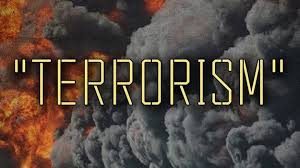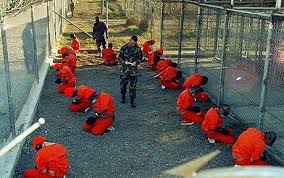
On November 13, 2015, teams of terrorists attacked six different sites across Paris, leaving 130 dead and more than 300 injured. This barbarous and callous attack on innocent civilians—perpetrated by ISIS (or ISIL) terrorists– is the worst to hit France since World War II, and the most severe in Europe since the 2004 Madrid bombings that killed 191. The attack came just 10 months after the murder of Charlie Hebdo cartoonists by terrorists. The French government, some of its allies and many Western politicians are now demanding and implementing military retaliation, expanded security capabilities and restrictions in individual freedoms.
Since then, terrorist attacks have occurred in the U.K., and other countries in Europe, the Middle East and Asia.
France
France’s demographics may be linked to the terrorists attacks committed by Muslims. France has approximately a 7.5% Muslim population and to a large extent they are poor, less educated and overrepresented in the prison population. In France, a poll by ICM Research showed that 27% of young French people, not just Muslims, between 18 and 24 had a favorable attitude toward the Islamic State.
Intense debate and rhetoric now abounds in the U.S. over what should be a response to the terrorist attacks and a long-term strategy, which ranges from restricting Syrian immigration to profiling Muslims to an all-out war in Syria and Iraq.
How Do We Define Terrorism?
Terrorism can be defined as the use, or threat of use, of violence by non-state groups to achieve political change, and in doing so, targeting non-combatant civilians as its immediate victims.
The key to this definition is the combination of small groups killing non-combatants. Terrorism is often the recourse of those desperate for a cause that cannot win by conventional means. But it is worth noting that state terrorism against a state’s own citizens–as practiced by Mao, Stalin, Hitler, and many smaller-league tyrants–has killed millions of non-combatants, whereas the anti-state terrorism we usually focus on, has killed thousands.
Mental illness appears not to be a critical factor in explaining terrorist behavior. For example, most terrorists are not “psychopaths.” There is no “terrorist personality”, nor is there any accurate profile – psychologically or otherwise – of the terrorist. Histories of childhood abuse and trauma and themes of perceived injustice and humiliation often are prominent in terrorist biographies, but do not fully explain terrorism. Terrorist ideologies tend to provide a set of beliefs that justify and mandate certain violent behaviors. Those beliefs are regarded as absolute, and the behaviors are seen as serving a meaningful cause.
The Origins of Terrorism
Modern-day terrorism can be traced back as far as the first century A.D., when Roman occupation forces and their collaborators in the Mideast were attacked. Like other religious extremists, the Zealots rejected the authority of a secular government and laws that did not incorporate their beliefs.
Centuries later the rise of nationalism spawned a new breed of terrorist, such as the IRA or Basques. Most such nationalists aim to create or reclaim a homeland; their actions are designed to garner international sympathy for their cause and to coerce the dominant group to concede to their wishes. Social revolutionary terrorists such as the German Red Army Faction (RAF) and the Italian Red Brigades, on the other hand, have sought to overthrow capitalism and the current social order.
During the 1970’s and 1980’s, nationalists and social revolutionaries were responsible for most acts of terrorism. But in recent decades no one has claimed responsibility for perhaps 40 percent of terrorist incidents, a fact experts attribute to the increasing frequency of terrorism perpetrated by religious extremists. Unlike the more politically motivated factions, these religious terrorists do not seek to change the policies of Western countries or groups but rather desire the destruction of the Western world in the name of God. This motive reveals why they are so dangerous: they are unconstrained by the negative Western political reaction, and instead of fearing death they embrace martyrdom.
The Motivation to Become Terrorists
Determining the motivation of terrorists has been difficult, but increasingly a topic of research by scholars. For one thing, terrorists rarely volunteer as experimental subjects and examining their behavior from afar could produce inaccurate conclusions. Perspective is another difficulty. One group’s terrorist is another group’s freedom fighter, as the millions of Arabs who support Palestinian suicide bombers will attest.
The psychology of terrorism is partly a case of theory and opinion rather than good science. Despite this, psychologists have suggested a view of terrorism in terms of political and group dynamics rather than individual behavior. In addition they have identified a universal psychological principle such as a subconscious fear of death and a desire for meaning and personal significance as having an important place in understanding terrorism.

One researcher, John Horgan at Pennsylvania State University, found that people who are more open to terrorist recruitment and radicalization tend to:
- Feel angry, alienated or disenfranchised.
- Believe that their current political involvement does not give them the power to effect real change.
- Identify with perceived victims of the social injustice they are fighting.
Feel the need to take action rather than just talking about the problem. - Believe that engaging in violence against the state is not immoral.
- Have friends or family sympathetic to the cause.
- Believe that joining a movement offers social and psychological rewards such as adventure, camaraderie and a heightened sense of identity.
After examining the detailed records of 400 extremist terrorists, forensic psychiatrist Marc Sageman of the University of Pennsylvania concluded these individuals are far from being brainwashed or socially isolated. Ninety percent of them came from caring, intact families; 63 per cent had gone to college, compared with the 5 to 6 percent background rate in the developing world, according to Sageman. Similarly, the suicide hijackers of 9/11 were well educated–three of them were in graduate school–and offspring of well-off Saudi and Egyptian families. Of course, not all terrorists come from financially and socially solid backgrounds. When Israeli social scientists conducted postmortem profiles of 93 Palestinian suicide bombers, aged 17 to 22, the scientists found that the bombers had been uniformly uneducated, unemployed and unmarried. It may be likely that the Parisian terrorists come from humble or disadvantaged backgrounds.
Some psychologists believe terrorism is most accurately viewed from a political perspective. Psychologist Clark McCauley, a co-investigator at START and director of the Solomon Asch Center for Study of Ethnopolitical Conflict at Bryn Mawr College, has come to see terrorism as “the warfare of the weak”—the means by which groups that lack material or political power fight what they see as oppressive forces.
Paradoxically, overcoming an unconscious fear of death may underlie much of the motivation behind terrorism and reactions to terrorism, maintains psychologists Tom Pyszczynski, of the University of Colorado at Colorado Springs, who, along with colleagues Jeff Greenberg, and Sheldon Solomon, have developed a “terror management theory,” which holds that people use culture and religion to protect themselves from a fear of death as a motivation to engage in brutal terror attacks, knowing that they will be killed themselves.
Further research conducted by Arie Kruglanski, co-director of the National Consortium for the Study of Terrorism and Responses to Terrorism, (START), says that a “collectivist mentality” may explain terrorism. His conclusion is based on his surveys of thousands of people in 15 Arab and other countries which found that Muslims who have a more collectivistic mentality are more likely to support terrorist attacks against Americans or Europeans than those with more individualistic leanings. The findings suggest that joining terrorist groups may confer a sense of security and meaning that people do not feel as individuals.
In a more global sense, a fear of cultural annihilation may help fuel terrorist sentiments, says psychologist and terrorism expert Fathali Moghaddam, of Georgetown University’s department of psychology. In “How Globalization Spurs Terrorism: The Lopsided Benefits of One World and Why That Fuels Violence,” Moghaddam argues that rapid globalization has forced disparate cultures into contact with one another and is threatening the domination or disappearance of some groups—a cultural version of “survival of the fittest.” “You can interpret Islamic terrorism as one form of reaction to the perception that the fundamentalist way of life is under attack and is about to become extinct,” he says.
The Causes for Jihadis Terrorism
Steve Taylor, writing in Psychology Today describes how, according to some estimates, at least 500 young British men of Asian descent have travelled to Syria or Iraq to become jihadis in extremist groups. He asks the questions: “What is it that makes young men susceptible to this narrative? Why are they drawn towards it, and why do they allow it to take such a hold over them that they lose all sense of humanity and morality?” Taylor contends, “It’s a mistake to simply label terrorists as ‘evil’ or psychologically deranged– in fact, psychologists who have studied terrorist groups have found that terrorists tend to be stable individuals, not paranoid or delusional. What seems to make terrorists essentially different from others is their ability to “switch off” their sense of empathy in service to their beliefs and goals.” He says that to become a terrorist means disengaging this natural empathy, so that a person can treat certain other human beings – the members of the groups he feels he is fighting against – as objects, and kill them without remorse. It means seeing members of those groups as fundamentally “other” and refusing to connect with them. It is only a complete lack of empathy, which makes it possible for one human being to behead another.
Most terrorists are young men, usually adolescents. Adolescence can be a psychologically difficult period, during which a person becomes aware of themselves as a separate individual, with a sense of vulnerability and fragility. As a result, there is a strong need for identity and belonging. This is why adolescents often join gangs, and become followers of fashion or of pop groups. Belonging to a group helps to alleviate their sense of separateness and strengthens their identity. But it’s also why adolescents are vulnerable to religious extremism. Belonging to a religion, and to a terrorist group within that religion, provides a like-minded community, supporting beliefs and possibly a family-like structure. It also provides status for people who may have little or none in a normal context
For the members of ISIS, joining the group means promoting the creation of an Islamic caliphate and ridding it of infidels. Vice Media interviewed Iraqi and Syrian children who said they wanted to become part of ISIS so they could kill infidels. ISIS has been particularly successful in recruiting its members through social media. In that sense, terrorism expert John Horgan said, there is a “truly global appeal of ISIS” that is new. “They have become so adept at social media that they are reaching out to disaffected individuals on a global scale,” he said.
What Do The Terrorists Hope To Accomplish?
Clark R. McCauley, a professor of psychology at Bryn Mawr College contends “Terrorism inflicts immediate damage in destroying lives and material, but terrorists hope that the long-term costs will be much greater.” Terrorists want to create fear and uncertainty far beyond the victims and those close to them and want the enemy to spend time and money on security. The costs of increased security are likely to be particularly high for a country like the U.S., where an open society is the foundation of economic success and a high-tech military. McCauley also argues: “Terrorists particularly hope to elicit a violent response that will assist them in mobilizing their own people. The pyramid is essential to the terrorists for cover and for recruits. The terrorists hope that a clumsy and over-generalized strike against them will hit some of their own side who are not yet radicalized and mobilized, will enlarge their base of sympathy, will turn the sympathetic but unmobilized to action and sacrifice, and will strengthen their own status at the apex of this pyramid.” McCauley says the biggest weakness terrorists have is not the “enemy” they attack, but from moderate opposition from within. If there is a violent reaction by the targets of terrorism, he contends, the terrorists will be able to get greater unity and silence the moderates.
What’s the Solution?
Since the first bombing attack on the World Trade Center, the Western, and particularly, the American response to terrorism, has shifted from criminal justice — finding, trying and punishing perpetrators –to waging war. Certainly, concerns about the safety of citizens in democratic societies are legitimate, and policies and actions aimed at guaranteeing citizen safety is desirable.
The solution to the kind of terrorism we are currently experiencing tends to attract polarized positions. Certainly we hear much currently indicating the solution is to take military action against the countries of origin of the terrorists, although many of them, for example, in France, were French citizens. We hear calls too from conservatives to restrict immigration, increase surveillance and impose further restrictions on privacy and individual rights. At the extreme, we hear rhetoric than is clearly racist and xenophobic.
Liberals have a different perspective. In an article in The Atlantic, Simon Cottee describes this perspective: “For example, in some quarters of the ‘radical’ left it is asserted that the roots of jihadist terrorism lie not in Islam but in the myriad historical crimes and injustices of Western, and specifically U.S.-driven, imperialism—most notably, in the post-9/11 era, the 2003 invasion of Iraq. Jihadist violence, from this perspective, is an inevitable reaction fuelled by Muslim anger and vengeance; and Westernized jihadists, far from rejecting the civilized norms and ideals proclaimed by the West, are in fact alienated from a West that excludes, demeans, and harasses Muslims.”
Some would argue the Islamophobic backlash running through the West may actually help recruit more jihadists. Certainly we can understand France’s desire for retribution or revenge. Yet U.S.politicians paint an ugly reminder as to where these emotions can lead. In both the United States and coalition allies, pressure is reportedly building for a stronger military response to ISIS including ground troops. Many of the things we’ve seen and heard in the news and social media are part of the manifestation of those inevitable twin emotions of rage and fear that, as Gawker’s Hamilton Nolan wrote after the Charlie Hebdo attacks, are exactly why terrorism works.
Some would argue that a reaction of stereotyping and prejudice toward Arabs and Muslims living in the U.S. will turn them from sources of help against terrorism to sources of further terrorism. Rudeness, suspicion and hostility directed toward Arabs and Muslims in the U.S. is good news for the terrorists. “Profiling” or other infringement of civil rights of Arabs and Muslims by U.S. agencies of state security can help encourage a sense of victimization.
Others would argue something different. The notion that terrorists could be talked out of committing violence using peaceful dialogue and a helping hand is no longer an idealist’s pipe dream, but actually the aim of a growing number of “de-radicalization” programs worldwide, says social psychologist and START co-director Kruglanski.
In his book, The Mind of the Terrorist: The Psychology of Terrorism from the IRA to Al-Qaeda by Jerrold M. Post, he argues that following the September 11, 2001, attacks on the Pentagon and the World Trade Center, the U.S. government declared war on al-Qaeda and terrorism in general. Just like any other conventional war, the Bush administration decided to combat the enemy by attacking and occupying alleged terrorist hotbeds: Afghanistan and Iraq. Post argues that the battle against terrorism cannot be won but can only be reduced requiring concerted efforts over decades to come. He promotes policies such as: Inhibiting potential terrorists from joining terrorist groups in the first place; producing dissension within the group; facilitating exit from the group, reducing support for the group and its leaders; and insulating the target audience. Although the policy recommendations are supposed to apply to all terrorist groups, they are heavily focused on combating Islamic terrorism.
How we characterize an issue affects how we think about it. Replacing the “war on terror” metaphor with other ways of framing counterterrorism might help us curtail the violence more effectively argues Arie W. Kruglanski, Martha Crenshaw, Jerrold M. Post and Jeff Victoroff writing in the Scientific American. They argue the following:
- Since the attacks on September 11, 2001, the Bush administration has used a war metaphor to define counterterrorism strategy.
- Such a description may simplify a complex reality, making it more mentally manageable, but it may also oversimplify and distort reality.
- Metaphors can guide national decision making. The wars that began in Afghanistan in 2001 and Iraq in 2003 clearly demonstrate that the concept of a war to combat a method of violence used by nonstate agents is more than rhetoric.
- Viewing counterterrorism through the lens of law enforcement may yield more tightly focused tactics that are less costly than war and less likely to provoke resentment and backlash.
Relating counterterrorism to disease containment or prejudice reduction shifts the focus to the psychological underpinnings of terrorism and, in doing so, may suggest successful long-term strategies that chip away at the motivations of terrorists.
They argue: “The psychological rationale of war is to bring the enemy to its knees and to convince it and its support base that terrorism is counterproductive. And yet experience in Chechnya, Afghanistan, Iraq, Ireland, and the West Bank and Gaza Strip suggests that the use of military force does little to ‘prove’ the inefficacy of terrorism. Military strikes against terrorist targets may temporarily interfere with terrorists’ ability to launch their operations, but they do not generally lessen the motivation to engage in violence—and may even boost it as a result of the enmity that foreign occupation typically engenders and of the injustice and excesses of war.” The authors say that framing counterterrorism as war has considerable costs. It threatens to corrupt society’s values, disrupt its orderly functioning and reshuffle its priorities. War calls for the disproportionate investment of a nation’s resources, with correspondingly less left for other concerns, including the economy, health care and education. “Collateral damage,” ethnic profiling, harsh interrogation tactics and unlimited internment of suspects may all be condoned in the name of security and excused by the uniqueness of circumstances the war concept implies. These costs are especially steep in a war that has no definite end.

But ISIS thrives on a pathological instinct to destroy, to avenge, to annihilate–a perspective which is rampant among “war hawks.” ISIS is a master of social media, in trolling, the epitome of modern terrorism, and for every tweet from extreme conservative commentators calling for the complete obliteration of Raqqa, another militant gets his suicide vest. Wahhabism, the foundation for radical Islam, is not representative of the history and ideology of Islam, nor the culture and identity of the Arab world. It thrives on fear and hatred, and it preys on young, disenfranchised youth. With every declaration of war, with every outpouring of violence, with every condemnation the international order declares against those it has ignored, these individuals feel an even greater desperation and need to join the only alternative they are offered a sense of community.
A Reasoned, Calm and Compassionate Response
Monuments, embassies and public squares around the world fly the French flag in a show of solidarity. Social media is abuzz to show Paris and the French their support. And while the media was quick to report on the solidarity from particular parts of the world, most did not show support for the French from Muslims across the Middle East and North Africa.
We need to pause and reflect on what can be the core causes for current terrorism and a long-term strategy. We need to pull back from a reactionary, violent response. We need to restrain ourselves from retributive justice and focus on restorative justice, one not fueled by vengeance. We need to turn away from hatred and prejudice and focus on compassion and addressing the core causes that attract young people–particularly young men–to become terrorists.
Copyright: Neither this article or a portion thereof may be reproduced in any print or media format without the express permission of the author.
Read my latest book: Eye of the Storm: How Mindful Leaders Can Transform Chaotic Workplaces, available in paperback and Kindle on Amazon and Barnes & Noble in the U.S., Canada, Europe and Australia and Asia.



